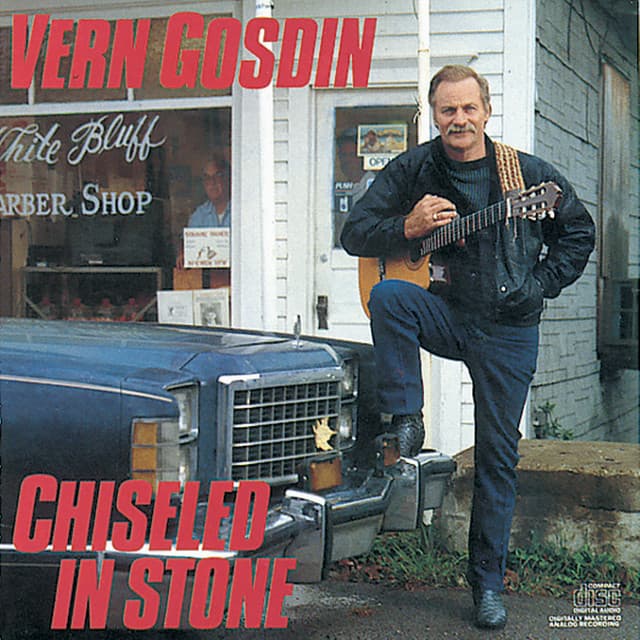
“Yesterday’s Gone”: A Haunting Reflection on Love’s Fading Echoes
There are voices in country music that, once heard, are never forgotten. And among them, the rich, resonant baritone of Vern Gosdin stands as a towering monument to heartfelt emotion and genuine heartbreak. When he sang, you didn’t just hear words; you felt every ache, every regret, every lingering shadow of a love lost. His 1977 hit, “Yesterday’s Gone,” is a prime example of this profound connection, a song that wraps itself around the quiet melancholy that often accompanies looking back on what once was. Released as a single from his album Till the End, this poignant ballad found its way into the top echelons of country radio, reaching an impressive No. 9 on the Billboard Hot Country Singles & Tracks chart. It was a pivotal moment in his career, solidifying his reputation as “The Voice” of country music, a title he earned through his uncanny ability to convey the rawest of human experiences.
The story behind “Yesterday’s Gone” is as timeless as the sentiment it expresses. While the song itself was penned by the gifted songwriter Wayne Bradford, its resonance with Vern Gosdin’s personal struggles and the very fabric of his artistic persona is undeniable. Gosdin’s life was no stranger to the trials of love and loss; he was famously known for channeling his own heartbreaks, particularly those stemming from his divorces, into his music. He had a knack for taking the universal pain of separation and making it feel deeply personal, as if he were singing directly to your own quiet sorrows. The collaboration with Emmylou Harris on this track further elevates its emotional depth. Her ethereal harmony vocals provide a perfect counterpoint to Gosdin’s grounded, soulful delivery, adding a layer of poignant beauty that makes the song truly unforgettable.
At its core, “Yesterday’s Gone” is a lament for a love that has simply faded away, a gentle acknowledgment that some chapters, no matter how cherished, must eventually close. It’s not a bitter anthem of anger, nor is it a desperate plea for reconciliation. Instead, it embodies a profound sense of acceptance, even resignation, to the passage of time and the irreversible nature of past choices. The lyrics paint a vivid picture of memories that linger like ghosts – “Once upon a time, there was tomorrow, but that was yesterday, and yesterday’s gone.” It speaks to the bittersweet realization that the dreams shared, the vows exchanged, and the intimate moments enjoyed are now simply relics of a bygone era. For anyone who has ever looked back on a significant relationship and recognized that the vibrant present they once knew has receded into the distant past, this song provides a resonant, empathetic soundtrack.
Vern Gosdin’s rendition of “Yesterday’s Gone” is a masterclass in understated emotional delivery. He doesn’t need to shout or grandstand to convey the weight of the lyrics. Instead, his voice, with its characteristic weary tenderness, carries the full burden of remembrance. Each word is carefully placed, each phrase imbued with a quiet dignity that transforms personal sorrow into a shared human experience. The sparse arrangement, typical of the classic country sound of that era, allows the melody and, most importantly, Gosdin’s voice, to shine through unimpeded. There’s a subtle steel guitar weaving through the background, a mournful whisper that perfectly complements the song’s reflective mood. It’s this combination of raw vocal talent, evocative songwriting, and sensitive production that makes “Yesterday’s Gone” such an enduring piece of music.
For those of us who came of age with the sounds of country radio filling our homes and cars, “Yesterday’s Gone” remains a powerful testament to the enduring power of a well-crafted ballad. It reminds us that even when the brightest moments dim, the echoes of love and experience remain, shaping who we are. It’s a song that speaks to the heart without needing to be loud, a gentle invitation to remember, to reflect, and to ultimately find peace with the passage of time. And in the grand tapestry of country music, Vern Gosdin’s “The Voice” will forever be one of the most honest and affecting storytellers of them all.